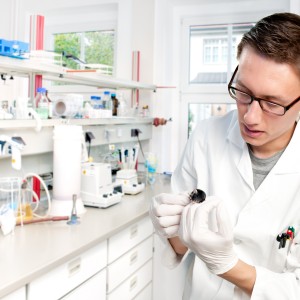BioBlast Pharma Announces Promising Preclinical Results on a New Therapy for Friedreich’s Ataxia

 Biotechnology company BioBlast Pharma Ltd. recently announced in a press release that its mitochondrial protein replacement therapy drug candidate (BB-FA) for Friedreich’s ataxia has yielded positive results in a preclinical in vitro and in vivo proof-of-concept study. The results were presented during the International Ataxia Research Conference recently held in Windsor, United Kingdom.
Biotechnology company BioBlast Pharma Ltd. recently announced in a press release that its mitochondrial protein replacement therapy drug candidate (BB-FA) for Friedreich’s ataxia has yielded positive results in a preclinical in vitro and in vivo proof-of-concept study. The results were presented during the International Ataxia Research Conference recently held in Windsor, United Kingdom.
Friedreich’s ataxia is a rare inherited neurodegenerative disease characterized by a progressive deterioration of the nervous system, with degeneration of the spinal cord and peripheral nerves, leading to muscle weakness, sensory loss, lack of voluntary coordination of muscle movements, balance deficits and progressive heart disease, often a common cause of death in Friedreich’s Ataxia patients. Usually Friedreich’s ataxia has a disease onset in childhood or adolescence and leads to dependence on a wheelchair and reduced life expectancy.
Friedreich’s ataxia is caused by a mutation in a gene called frataxin (FXN), which leads to a reduction in messenger RNA and subsequent reduction in frataxin protein expression, causing mitochondrial dysfunction, disruption of iron homeostasis and ultimately cell death.
BB-FA is part of the BioBlast’s mitochondrial protein replacement platform that is based on biological fusion proteins. This system was developed for mitochondrial protein deficiency diseases and its goal is to replace missing or mutated proteins into the mitochondria in order to restore proper functioning. It is estimated that there are over a hundred genetic diseases caused by a missing or mutated protein that is crucial for normal mitochondrial function. In the case of Friedreich’s ataxia, BB-FA encodes a fully functional frataxin protein.
BB-FA was found to effectively penetrate the mitochondria and restore mitochondrial function to almost normal levels in several patient cell lines. When tested in two different rodent models of Friedreich’s Ataxia, BB-FA was found to restore both brain and heart tissues activity to a near normal function. BB-FA also induced weight gain in mice, prevented the development of heart disease and increased survival.
“We are excited by this breakthrough proof-of-concept of our mitochondrial protein replacement platform. This is a strong evidence of the immense potential of our platform, which aims to address the needs of thousands of patients suffering from these debilitating and fatal diseases. We are eager to move BB-FA forward into clinical testing following our anticipated completion of the preclinical program in late 2016,” concluded BioBlast’s President and CEO Colin Foster.





